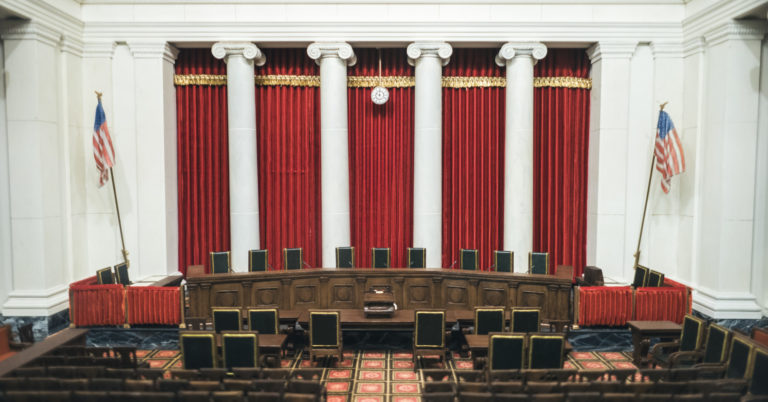
Narrow question in Supreme Court campus speech case has broad First Amendment implications
The Supreme Court hears oral argument today in Uzuegbunam v. Preczewski, addressing whether “a government’s post-filing change of an unconstitutional policy moots nominal-damages claims that vindicate the government’s past, completed violation of a plaintiff’s constitutional right.”
Translation? The justices are deciding whether people whose rights have been violated should have their day in court even if they can’t show monetary harm. And there’s a strong argument that the answer should be yes.
The American Civil Liberties Union, Americans for Prosperity Foundation, Americans United for Separation of Church and State, and Institute for Justice make that case in an amicus brief in support of petitioners, highlighting the important role nominal damages have played in vindicating a range of constitutional rights:
The violation of fundamental rights by the government is undoubtedly an injury. Indeed, it is the kind of injury that [the] Court has recognized warrants extraordinary relief. ‘The loss of First Amendment freedoms, for even minimal periods of time, unquestionably constitutes irreparable injury.’ Elrod v Burns, 427 U.S. 347, 373 (1976).
The nominal damages at issue are a form of relief, usually one dollar, awarded to a plaintiff who was injured but has no associated financial harm. In cases of free speech violations, the person denied the right to speak might have suffered a constitutional violation but might not have lost any money in the process.
While the question before the Court may seem modest on its face, it has generated a wide range of amicus support, with 22 amicus briefs filed in support of petitioners on the merits, representing the views of 38 private individuals and organizations, plus the solicitor general on behalf of the United States. While the amici represent a broad array of perspectives, they have similar views on the importance of nominal damages in preserving a litigant’s right to vindicate constitutional injury.
People being able to seek justice for violation of their rights without having taken a financial hit is especially important for free speech. First Amendment cases rarely ask for much, if any, compensation. If the courts don’t see plaintiffs who have only nominal damages as sufficient to keeping their case going, those injustices won’t be addressed.
In addition, because Article III standing is not based on the size of the injury, and past harms cannot be remedied by eliminating future harm, it makes no sense to consider a case moot based solely on making a policy change that can only be applied prospectively.
This approach is consistent with federal civil rights law, where an award of nominal damages qualifies as “prevailing party” status. Without access to such an award, the function of the statute would be undermined.
In addition to these general concerns, there are special prudential concerns that apply to colleges and universities, which are adept at evading adjudication of unconstitutional policies so students never get their day in court. Some schools, for example, avoid judicial review of oppressive speech policies by mooting claims for equitable relief through strategic modification of policies while a case is pending — essentially, they change their practices to end the case and avoid a ruling. In other cases, schools avoid judicial review by simply waiting for students to graduate.
The harm from these practices is not limited to the students involved. Lack of legal precedent on constitutional issues that evade review exacerbates problems created by the doctrine of qualified immunity, which shields abuse by public officials in situations for which no precedent has been developed for similar fact-patterns.
These issues and more are encompassed by the narrow question before the Court and resolution in the petitioner’s favor will be critical to the future of free speech on campus.
Read the full brief for Uzuegbunam v. Preczewski here.



